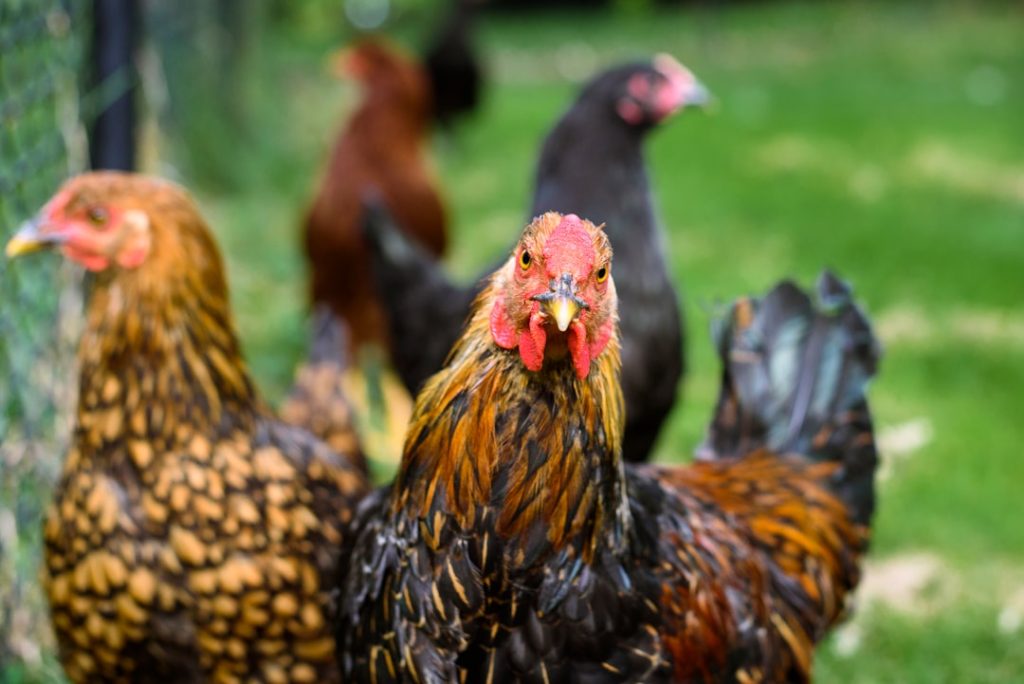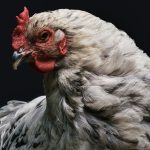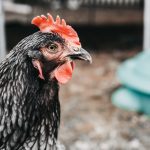Buff Orpington chickens are a popular breed renowned for their friendly and docile nature, making them suitable for both novice and experienced poultry keepers. As a dual-purpose breed, they are valued for egg production and meat. Buff Orpingtons are easily identifiable by their distinctive golden buff plumage, which contributes to their warm appearance.
They possess a broad, deep body with a low stance, giving them a substantial and sturdy look. These chickens are characterized by their calm and gentle temperament, making them excellent additions to backyard flocks. They are also known for their strong maternal instincts, which is beneficial for those interested in breeding and raising chicks.
Buff Orpingtons are cold-hardy, adapting well to colder climates. They are considered relatively low-maintenance, appealing to those seeking an easy-to-care-for breed. Their friendly disposition makes them suitable for families with children, as they tend to be gentle and tolerant of handling.
In summary, Buff Orpington chickens are a versatile and attractive breed that can be a valuable addition to various poultry-keeping environments.
Table of Contents
- 1 Housing and Space Requirements
- 2 Feeding and Nutrition
- 3 Health and Wellness
- 4 Egg Production and Care
- 5 Handling and Socialization
- 6 Breeding and Reproduction
- 7 FAQs
- 7.1 What are Buff Orpington chickens?
- 7.2 What do Buff Orpington chickens look like?
- 7.3 What are the characteristics of Buff Orpington chickens?
- 7.4 How do I care for Buff Orpington chickens?
- 7.5 What are some common health issues for Buff Orpington chickens?
- 7.6 Are Buff Orpington chickens good for beginners?
Key Takeaways
- Buff Orpington chickens are a popular breed known for their friendly and docile nature, making them great for families and beginners.
- When housing Buff Orpington chickens, provide at least 4 square feet of space per bird in the coop and 10 square feet in the outdoor run.
- A balanced diet for Buff Orpington chickens includes a mix of commercial feed, grains, fruits, vegetables, and access to grit and oyster shell for calcium.
- Regular health checks, vaccinations, and parasite control are essential for maintaining the wellness of Buff Orpington chickens.
- Buff Orpington hens are known for their excellent egg production, laying around 200-280 large brown eggs per year, and they require proper nesting boxes and regular egg collection.
Housing and Space Requirements
Space Requirements
A general rule of thumb is to provide at least 4 square feet of space per chicken inside the coop and at least 10 square feet per chicken in the outdoor run area. This ensures that your chickens have enough room to roam and exercise without feeling cramped or stressed.
Coop Essentials
In addition to providing adequate space, it’s crucial to include essential features in the coop, such as roosting bars for the chickens to perch on at night and nesting boxes for them to lay their eggs. The nesting boxes should be filled with clean bedding material, such as straw or wood shavings, to create a comfortable and inviting space for the hens to lay their eggs.
Maintenance and Hygiene
Regular cleaning of the coop is vital to maintain a healthy living environment for your chickens. This involves removing any soiled bedding, cleaning the coop, and replenishing the bedding material to keep the area clean and free from disease. By providing a spacious and well-maintained coop, you can keep your Buff Orpington chickens happy and healthy.
Feeding and Nutrition
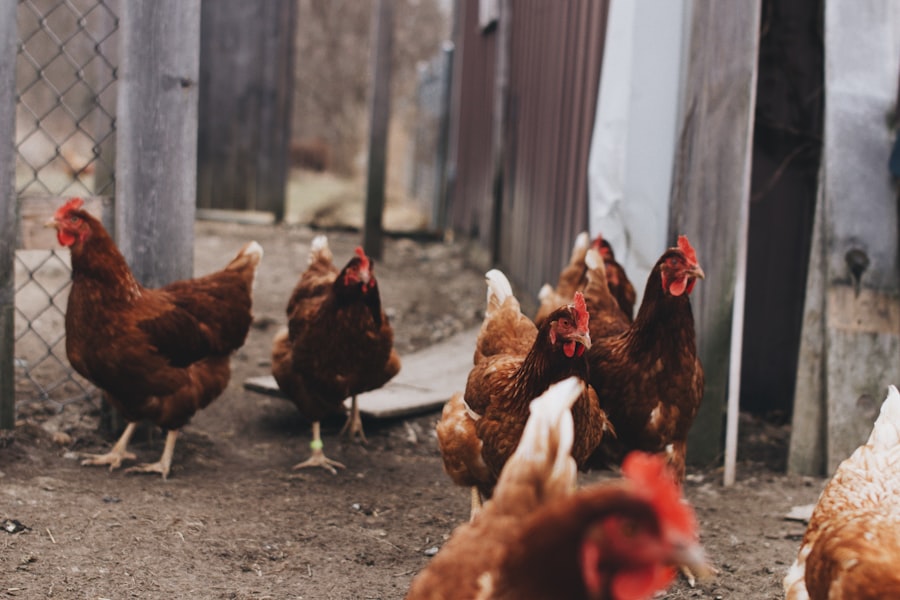
Proper nutrition is essential for the health and well-being of Buff Orpington chickens. A balanced diet is crucial for supporting egg production, maintaining healthy feathers, and promoting overall vitality. A good quality commercial layer feed is an excellent choice for Buff Orpington hens, as it provides the essential nutrients they need for egg production.
Additionally, offering supplemental treats such as fruits, vegetables, and mealworms can provide variety in their diet and serve as a source of enrichment. Fresh, clean water should always be available to the chickens, as dehydration can lead to health issues and decreased egg production. It’s important to regularly clean and refill waterers to ensure that the chickens have access to clean water at all times.
In addition to providing a balanced diet, it’s important to monitor the chickens’ body condition and adjust their feed intake as needed. Overfeeding can lead to obesity and health issues, while underfeeding can result in poor egg production and overall health. By providing a balanced diet and monitoring their feed intake, you can ensure that your Buff Orpington chickens remain healthy and productive.
Health and Wellness
Maintaining the health and wellness of Buff Orpington chickens is essential for ensuring their long-term well-being. Regular health checks should be conducted to monitor the chickens for any signs of illness or injury. Common health issues in chickens include respiratory infections, parasites, and reproductive disorders.
It’s important to familiarize yourself with the signs of common chicken illnesses so that you can promptly address any health concerns that may arise. Preventative measures such as vaccination and parasite control can help protect your chickens from common health issues. Additionally, providing a clean living environment, regular access to fresh water, and a balanced diet can help support their overall health and immune function.
If you notice any changes in behavior or appearance in your Buff Orpington chickens, it’s important to consult with a veterinarian who specializes in poultry health to ensure that they receive proper care.
Egg Production and Care
Buff Orpington chickens are known for their excellent egg-laying abilities, making them a popular choice for those interested in raising chickens for fresh eggs. On average, Buff Orpington hens can lay around 200-280 brown eggs per year, depending on factors such as diet, housing conditions, and genetics. To support optimal egg production, it’s important to provide the hens with a balanced diet, access to fresh water, and a comfortable nesting area.
Collecting eggs regularly is important for maintaining egg quality and preventing broodiness in the hens. Broodiness is a natural behavior in which hens become dedicated to sitting on their eggs in an attempt to hatch them. While broodiness can be desirable if you’re interested in breeding chicks, it can also lead to decreased egg production if left unchecked.
To discourage broodiness, it’s important to collect eggs regularly and provide an environment that minimizes the hens’ desire to sit on their eggs.
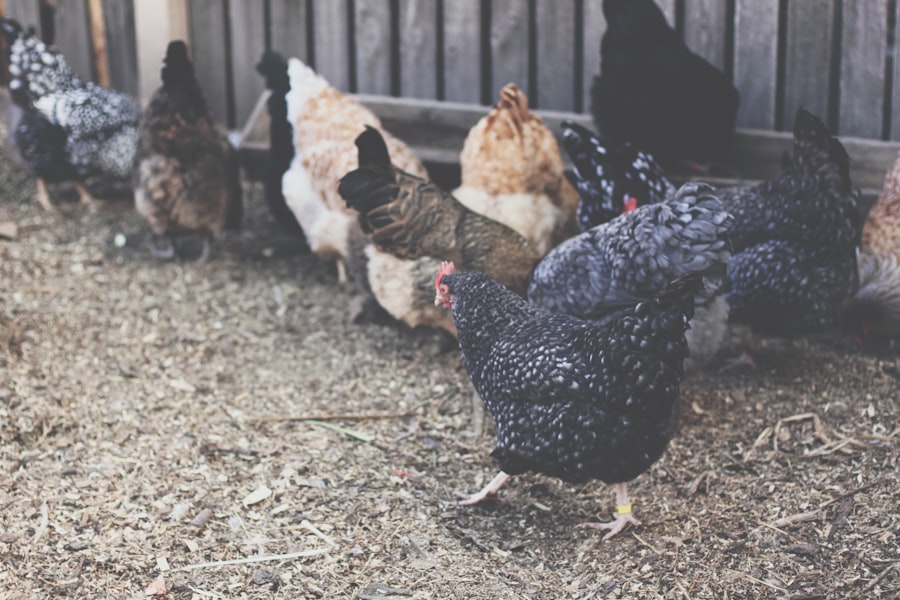
Regular interaction with humans can help tame the chickens and make them more comfortable with being handled. This is especially important if you plan on breeding or showing your Buff Orpingtons, as they will need to be comfortable with being handled by judges or potential buyers.
Handling Techniques
When handling Buff Orpington chickens, it’s essential to approach them calmly and gently to avoid causing unnecessary stress. Start by spending time near the chickens without attempting to touch them, allowing them to become accustomed to your presence. Once they are comfortable with your presence, you can begin gently petting and handling them.
Creating Positive Associations
Offering treats during handling sessions can help create positive associations with human interaction.
Breeding and Reproduction
Breeding Buff Orpington chickens can be a rewarding experience for those interested in expanding their flock or raising chicks. When breeding Buff Orpingtons, it’s important to select breeding stock that exhibits desirable traits such as good egg production, strong conformation, and friendly temperament. By carefully selecting breeding stock with these traits, you can help ensure that the offspring inherit these desirable qualities.
To encourage successful breeding, it’s important to provide a comfortable nesting area for the hens to lay their eggs. Once the eggs are laid, they should be collected regularly and stored in a cool, humid environment until they are ready to be incubated. Whether using an artificial incubator or allowing a broody hen to hatch the eggs naturally, it’s important to provide a warm and stable environment for the eggs to develop.
Overall, breeding Buff Orpington chickens requires careful selection of breeding stock and proper management of the breeding process. By following best practices for breeding and reproduction, you can help ensure the health and vitality of future generations of Buff Orpington chickens.
If you’re interested in keeping Buff Orpington chickens, you may also want to check out this article on chicken coop run plans to ensure your chickens have a safe and comfortable space to roam.
FAQs
What are Buff Orpington chickens?
Buff Orpington chickens are a breed of domestic poultry that are known for their friendly and docile nature. They are also valued for their dual-purpose capabilities, as they are good egg layers and have a decent amount of meat.
What do Buff Orpington chickens look like?
Buff Orpington chickens have a beautiful golden buff color with a soft, fluffy appearance. They have a medium size and a broad, upright stance. Their feathers are smooth and have a slight sheen to them.
What are the characteristics of Buff Orpington chickens?
Buff Orpington chickens are known for their calm and friendly temperament, making them great for families and beginners. They are also good egg layers, producing around 200-280 brown eggs per year. Additionally, they are cold hardy and do well in free-range environments.
How do I care for Buff Orpington chickens?
To care for Buff Orpington chickens, provide them with a spacious and secure coop, a balanced diet of chicken feed and fresh water, and regular health check-ups. They also benefit from regular access to outdoor space for foraging and exercise.
What are some common health issues for Buff Orpington chickens?
Some common health issues for Buff Orpington chickens include respiratory infections, mites and lice infestations, and bumblefoot. It’s important to monitor their health and seek veterinary care if any issues arise.
Are Buff Orpington chickens good for beginners?
Yes, Buff Orpington chickens are often recommended for beginners due to their friendly nature, ease of care, and cold hardiness. They are also good egg layers, making them a practical choice for those interested in raising chickens for eggs.
Meet Walter, the feathered-friend fanatic of Florida! Nestled in the sunshine state, Walter struts through life with his feathered companions, clucking his way to happiness. With a coop that’s fancier than a five-star hotel, he’s the Don Juan of the chicken world. When he’s not teaching his hens to do the cha-cha, you’ll find him in a heated debate with his prized rooster, Sir Clucks-a-Lot. Walter’s poultry passion is no yolk; he’s the sunny-side-up guy you never knew you needed in your flock of friends!

